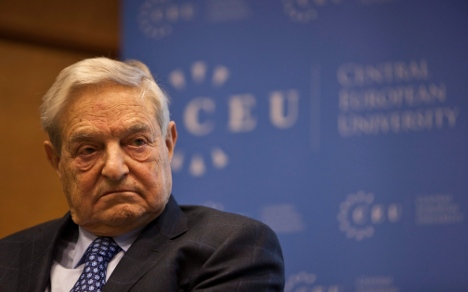“In my judgment, the authorities have a three months’ window during which they could correct their mistakes and reverse the current trends,” Soros said Saturday at an economics conference in Trento, Italy, naming those authorities as Germany and the Bundesbank, the German Central Bank.
“In a crisis, the creditors are in the driver’s seat and nothing can be done without German support,” he said, noting that public opposition to austerity in the eurozone “is likely to grow until the policy is reversed.”
He said there were still plenty of opportunities to save the euro, but it would require the active support of Merkel and the Bundesbank. But he warned that if the opportunity were not taken, Europe would be threatened with a “lost decade.”
Greece is heading to the polls for a second time in six weeks after an inconclusive vote on May 6. And with the radical leftist Syriza party, chief opponent of a massive EU-IMF bailout accord, tipped to win this time, the election could lead to Greece quitting the single currency.
“I expect that the Greek public will be sufficiently frightened by the prospect of expulsion from the European Union that it will give a narrow majority of seats to a coalition that is ready to abide by the current agreement,” Soros said, referring to June 17 polls in the debt-stricken state.
The “crisis is liable to come to a climax in the fall” of the year, he said.
“By that time the German economy will also be weakening so that Chancellor (Angela) Merkel will find it even more difficult than today to persuade the German public to accept any additional European responsibilities,” said Soros.
“That is what creates a three months’ window.”
AFP/The Local/bk




 Please whitelist us to continue reading.
Please whitelist us to continue reading.
Member comments